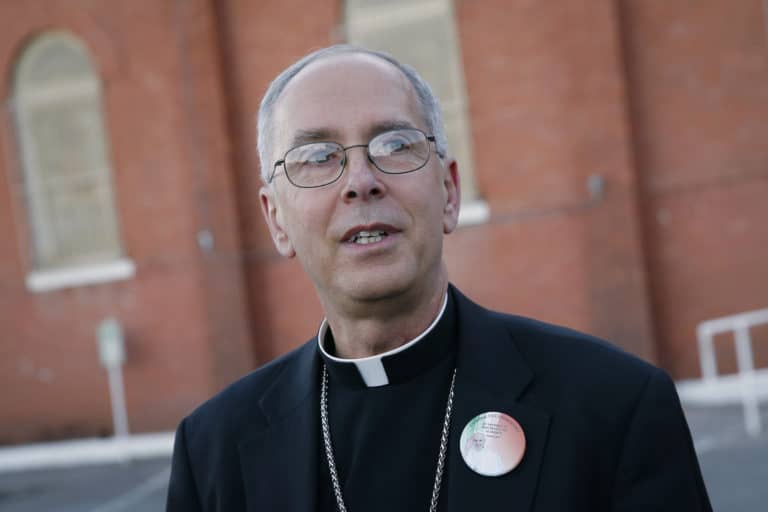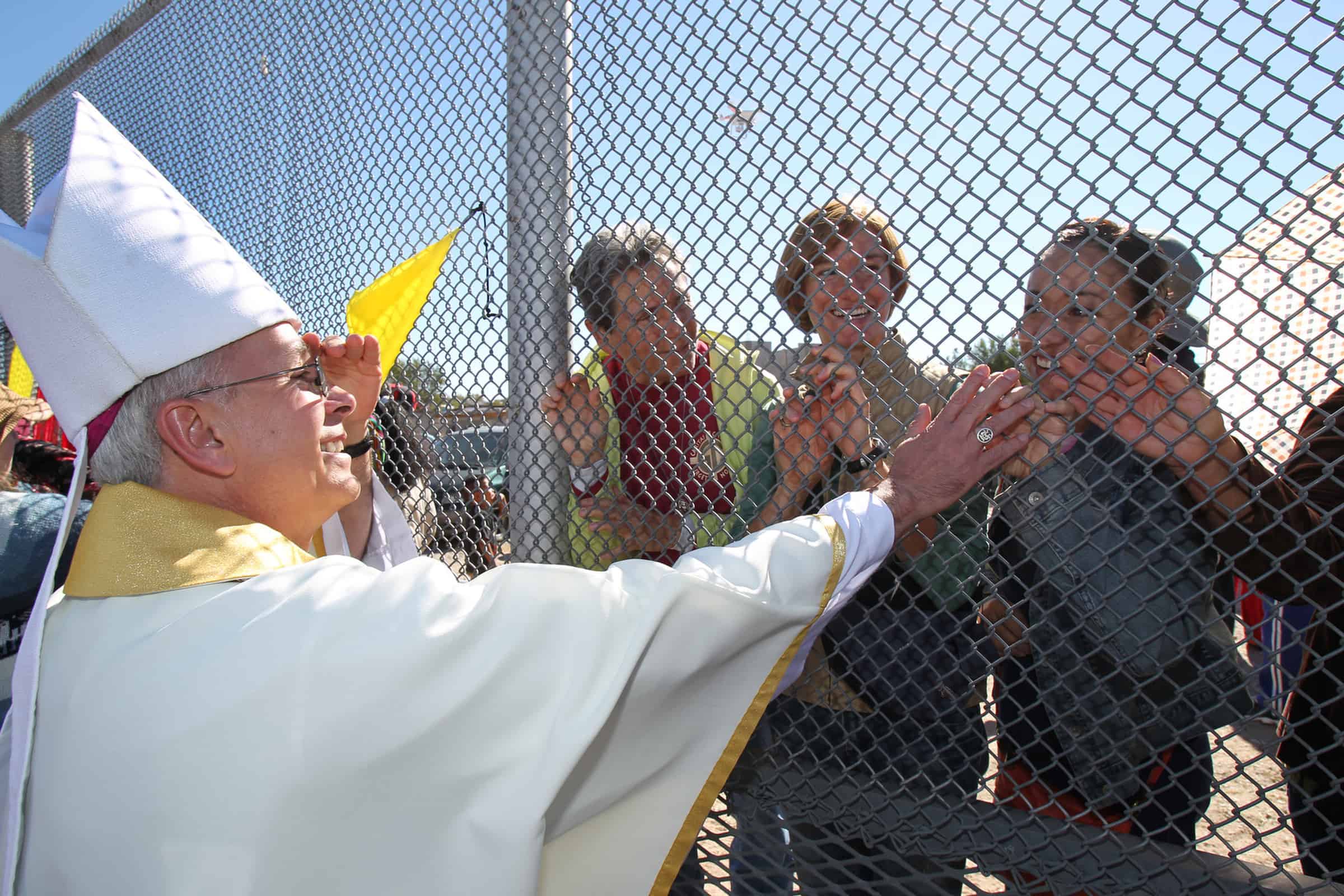Being a news junkie today is to be hit daily by an avalanche of bad news, a lot of it sensationalistic. News of mass shootings, deportations of the parents of young children, and the rise in hateful speech – so casually spewed – often overwhelm me. That is not to say that I am unaware of the good going on. I just wish there were more of it.
This is why I was refreshed by the tone and message of a pastoral letter issued last Tuesday by Bishop Mark Seitz of the diocese of El Paso, Texas. He addresses the situation of migrants and refugees in his border city, separated from its sister city Ciudad Juarez, Mexico by the Rio Grande. Rather than just lament the suffering, poverty, and violence that brings migrants to the USA, or dwell on the ways that fear of round-ups and deportation migrants face in the current political climate, he speaks a word of hope to all people caught up in these realities.
The title of the bishop’s letter, Sorrow and Mourning Flee Away, comes from Isaiah 51:11, which tells of the final joyful entry of the dispossessed and exploited in Jerusalem. It’s a message of God’s promise of salvation being fulfilled for his beloved suffering people. He goes on to connect the literal desert in which El Paso is located—in which many migrants die trying to cross—and the metaphorical desert of fear and marginalization migrants are facing today, with Isaiah 35:7-10, which prophesies that the desert will turn to springs and burning sands to pools of water.
This is not a head-in-the-clouds letter, however. El Paso has a history that resonates with these scriptures and this vision of hope – and the bishop stays grounded in that history. The bishop recounts that the area is the ancient home of several indigenous groups, then a long list of migrants have come in turn—first the Spanish, then from the Republic of Texas, the young United States, Ireland, China, refugees from the Mexican Revolution, escapees of the Cristero War, and now those fleeing Mexican and Central American drug lords and gangs. The city’s ability to welcome and absorb each group has created the integrated shared culture that freely spans the border.

Bishop Mark J. Seitz of El Paso, Texas, is seen outside St. Ignatius Church in the Segundo Barrio of El Paso Feb. 15, 2016. (CNS photo/Nancy Wiechec)
Echoing Pope Francis’ constant exhortation to build bridges, Bishop Seitz blames no particular group for the current mess. Starting from what is common—a shared agreement that our immigration system is broken—he proposes a vision of reform that upholds both national security and the right of people to migrate when life becomes untenable at home. This is not a new message. The US bishops have been advocating comprehensive immigration reform for many years, and Congress has continually failed to act. This pastoral letter, however, takes the matter from the level of policy and principle and roots it in contextual spiritual discernment that is incumbent upon each person and the community at large.
He names three sequential steps: (1) encounter, (2) conversion, and (3) compassion. El Paso has been and continues to be a place of encounter between people of different backgrounds. In an encounter with others, approached with openness and the belief that all people are made in the image and likeness of God, God is revealed. This leads us to conversion, because we encounter God in the other and are challenged and changed. Conversion then motivates us to do things and to do them differently – with Christ-like compassion. More than a pastoral approach to a problem, Bishop Seitz offers a model for unity of the Church, the unity of the Body of Christ, which we manifest and pray for in every Sunday Eucharist.
Bishop Seitz is connecting many dots that we often fail to: linking worship, the web of relationships, Catholic teaching, public policies, and collective action. The message is clearly focused on what can unite rather than divide, build bridges rather than walls, encounter rather than isolation. This message of reconciliation is so unusual and refreshing to me in the United States of 2017. I’d like to shout it out from the rooftops: Sorrow and Mourning Flee!


